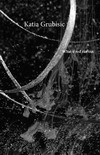
What If Red Ran Out
Katia Grubisic
Goose Lane Editions
$17.95
paper
100pp
978-0-864292-509-1
Grubisic meets me in a Mile End café, arriving late on her bike. She apologizes, mentioning she was delayed by discussions with a French general who fought in Vietnam. It is an aptly intriguing beginning. A trained dancer with university degrees in French and English literature, Grubisic is poised and graceful in person. She is also unsettlingly self-assured. Although a young poet, she delivers her answers with energetic precision, as though she has been thinking over the questions for years.
Where does the borderless quality of her work come from? In “A Hyena in the Bodega,” for example, neither country, nor situation, nor even identity is ever made explicit, yet the foreignness of the place is clear:
Her dining companion is a good man
if a little uneasy. It is his fault, after all,
that there’s a hyena in the bodega…
she is a supplicant slavering at his legs and he continues to smoke. She cannot keep him.
As in an Aboriginal tale, the human speaker is transformed into an animal and back again. The reader accepts this ambiguity in place and self without feeling remotely lost, largely because the poet appears so comfortable with it.
“When it works,” says Grubisic, “it begins with a strong, specific sense of place. In ‘A Hyena in the Bodega,’ for instance, I had a place in mind, but obviously it’s universalized. And the metaphorical aspect evolves. There isn’t really a hyena in the bodega. But you need to construct a three-dimensional world for the poetic voice to inhabit. Otherwise, it’s totally abstract, or it’s based totally on an emotional space, or it’s a postcard poem-‘Look at me being foreign in this foreign place, how weird, how exotic.’ I am conscious of trying to universalize it after I’ve hung it on a concrete place. There is this sense that you don’t want to be so particular that the place takes over the metaphor.”
The borderless quality might also come, Grubisic admits, from a certain innate restlessness. When she was growing up her family lived “all over Ontario.” Her father is a Croatian writer, her mother is Swiss, and Grubisic’s first language was French. All of her extended family lives in Europe. She does feel a part of the Croatian-Canadian community, particularly in Sudbury and Waterloo, where her family lived the longest. Grubisic notes that her five-year stay in Montreal is something of a lifetime record.
Grubisic’s poetry is rooted, however, in another way. Birds, animals, insects, rivers, creeks are ubiquitous, drawn on occasion with supernatural vividness. The poems in which they figure are often mournful. “Poem to the Sand Verbena Moth” bears stoical witness to the helplessness and slow destruction of the natural world:
There is no bunchgrass left
and the moth turns
to screen doors or lanterns or
the quiet corners where it understands
it is lost and waits tensely
for the death we elaborate for it.
A rare intimacy pervades her depictions: a heron’s feet “wrap the rock/ like gnarled lichen,” a cormorant is “stretched, its orange beak distending sun.” Grubisic explains the almost tender detail: “For the Romantics, nature was about its reflection in the poet, in the self. The flip side of that, the fear of extinction, is [that] when you mourn someone, a parent or a friend, you mourn them fairly specifically. You owe it to the world that you are bemoaning, that you are eulogizing, to be specific about it.”
Grubisic offers that What if red ran out, the whimsical-sounding title of the collection, in fact “speaks to a fear of loss, including loss of the natural world.” A choreographer once mentioned the gradual extinction of the red cochineal bug, an insect related to the ladybug, which is harvested to make natural food colouring. Although Grubisic was never able to corroborate the insect’s extinction, the title’s broader abstract possibilities stuck. “We don’t know what to do with extinction, except mourn it when it’s done, and not actually prevent it in any way. We just keep driving and spewing junk into the air. The title stands for loss on a wider scale.”
The sustained sense of loss is, perhaps, what gives this poetic voice its deeply meditative, disembodied tone at times. Certain poems exhibit a remarkable counterpoint between this tone and a feral subject matter. In “Paradise, Dam, North Shore” the narrator witnesses a heron devouring a fish, still squirming in its beak, and responds by remarking abstractly: “there is no forethought/ to concupiscience.” Later, while making love, the narrator recalls the bird’s greedy satiation.
Grubisic appears slightly disconcerted by the implication that there is a contrast between the meditative and the feral. “The contrast between the meditativeness and the wilderness…is it an effort to domesticate?” she muses, turning away in thoughtful silence. She later observes of the last named poem and “Raven on the Watertower”: “[They] are examples of my attempt not to anthropomorphize beyond the boundaries of the human. I like the way Don McKay’s speakers have a humility in addressing the natural world without dumping all of this human baggage which is a little hubristic. In those poems there’s an alignment of the self to the natural world. At the end of ‘Paradise, Dam, North Shore,’ she’s with her lover and thinks back to what she saw in the bird. To bridge those two is a way to erase the difference between them. I don’t know if it’s meditation so much as an attempt to remove the ego a little bit.”
The last remark is as striking, in an ego-saturated society, as the alien cry of Grubisic’s raven. Why, in a world that seems less and less interested, is poetry important? “Part of it is the general linearization of society. There’s a much more straightforward way we have of being advertised to, or entertained, or spoken to. On a communicative level, there’s less density and less tolerance, a kind of fear, maybe, for the kind of expansive metaphor that doesn’t tell you what it’s about. You have to make that decision yourself.” But, “you need idleness, you need the gaps, when you’re not thinking about anything at all.” She adds, “There was a time when the Hudson’s Bay Company advertised on the back of major newspapers with Gwendolyn MacEwen poems. That wasn’t that far away – one hopes that it will come back.”
Her voice is wistful. Later, struck by the image of Grubisic as a Cassandra-like figure, I reread “Basin no. 3,” which describes the “small fuse box/…its wires ragged” where :
two pigeons have come to die: their
bodies bundled fatly, breast nestled,
as though by art or design
against breast, and flight is an eddy of
old
feathers, brown and unquilled at our
feet.
Initially, the verses seem bare of emotion. But it is there, in the coolly rendered portrait – part funereal chant, part sacred testimony – of that avian death-embrace. One is made starkly aware of the beautiful thing Grubisic is trying to do. mRb







0 Comments